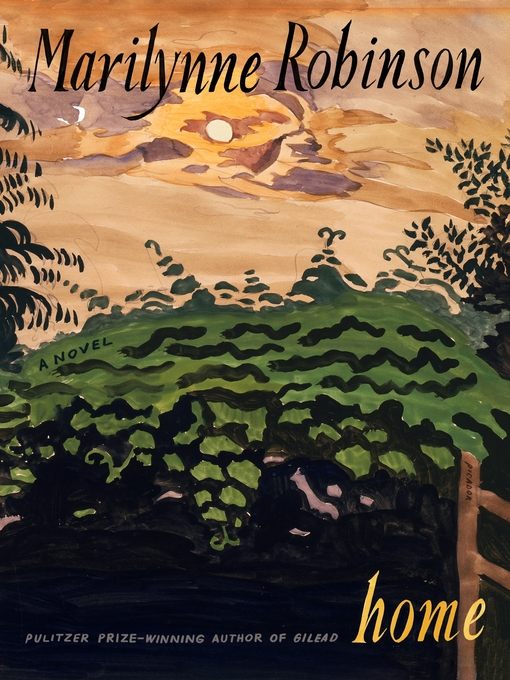
Home
Gilead Series, Book 2
کتاب های مرتبط
- اطلاعات
- نقد و بررسی
- دیدگاه کاربران
نقد و بررسی

Starred review from June 30, 2008
Robinson's beautiful new novel, a companion piece to her Pulitzer Prize–winning Gilead
, is an elegant variation on the parable of the prodigal son's return. The son is Jack Boughton, one of the eight children of Robert Boughton, the former Gilead, Iowa, pastor, who now, in 1957, is a widowed and dying man. Jack returns home shortly after his sister, 38-year-old Glory, moves in to nurse their father, and it is through Glory's eyes that we see Jack's drama unfold. When Glory last laid eyes on Jack, she was 16, and he was leaving Gilead with a reputation as a thief and a scoundrel, having just gotten an underage girl pregnant. By his account, he'd since lived as a vagrant, drunk and jailbird until he fell in with a woman named Della in St. Louis. By degrees, Jack and Glory bond while taking care of their father, but when Jack's letters to Della are returned unopened, Glory has to deal with Jack's relapse into bad habits and the effect it has on their father. In giving an ancient drama of grace and perdition such a strong domestic setup, Robinson stakes a fierce claim to a divine recognition behind the rituals of home.

Starred review from August 15, 2008
This follow-up to Robinson's Pulitzer Prize-winning "Gilead" (2004) is a concurrent narrative rather than a sequel, as if the earlier novel's journal entries had concluded with "Meanwhile]." The plot here concerns the large family of elderly Rev. Robert Broughton, specifically two of his adult children, who have returned to Iowa temporarily. Youngest sister Glory keeps house for her dying father, but her efforts are eclipsed by the reappearance of bad-boy favorite child Jack Ames Broughton two decades after a scandalous departure. Pain-filled and mysterious, Jack reengages uncomfortably with relations and neighbors, forcing them to confront perhaps unbearable truths about themselves and society. In Robinson's characteristically calm, measured language, the author creates three-dimensional characters that move believably within beautifully realized physical and psychological space as they confront (and challenge the reader with) deeply serious questions of faith, moral responsibility, and the racial divide in America. Fans of "Gilead" will be grateful for this expansion of the storyand for its closing hint of a possible return to the extended Ames/Boughton families, whose two small sons will carry their complicated heritage into the cultural revolutions of the 1960s. Highly recommended for all fiction collections. [See Prepub Alert, "LJ" 5/1/08.]Starr E. Smith, Fairfax Cty. PL, VA
Copyright 2008 Library Journal, LLC Used with permission.

June 1, 2008
RobinsonsGilead (2004), a contemplative novelin the voice ofseptuagenarian Reverend John Ames, enthralledreaders andearned a Pulitzer Prize. A poetic and philosophical writer concerned about the state of the earth and our collective souls, Robinson returns to mid-1950s Gilead, Iowa, to tell a different facet of the same story. Johns best friend, the Reverend Boughton, is in decline. Glory, the youngest of his eight children, has come home to care for him, and both are grateful and alarmedwhen Jack, the prodigal son, reappears after an excruciating 20-year absence. Once a charming scoundrel, Jack is now riddled with regrets and despair. As she cares for two broken men struggling toward reconciliation and redemption, Glory is a paragon of patience, a virtue readers also must cultivate as Robinson follows an austerenarrative regime, confining the reader to the day-by-day present and the Boughton home. Household chores areinfused with metaphysical implications, while what is not said carries more weight than what is spoken. Robinson wrestles with moral dilemmas ordinary and catastrophic, and ponders themystery of why human beings never feel wholly at home on earth. This is a rigorous, sometimes claustrophobic, yet powerfullyspiritual novel ofanguish and prayer, wisdom and beauty, penance andhope.(Reprinted with permission of Booklist, copyright 2008, American Library Association.)

























دیدگاه کاربران